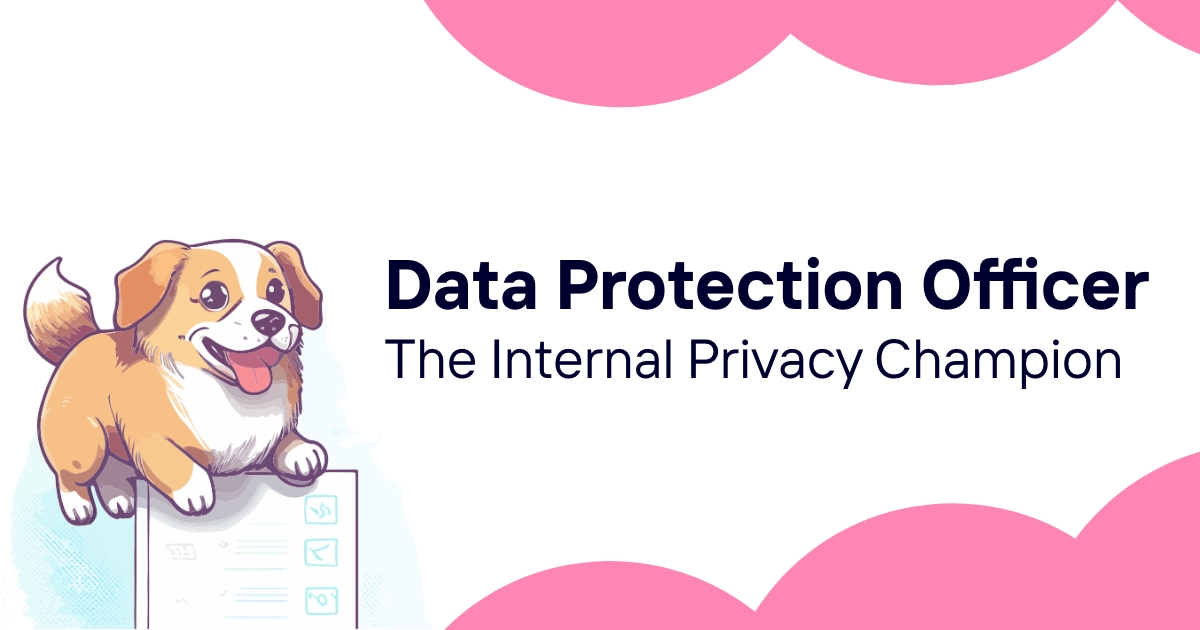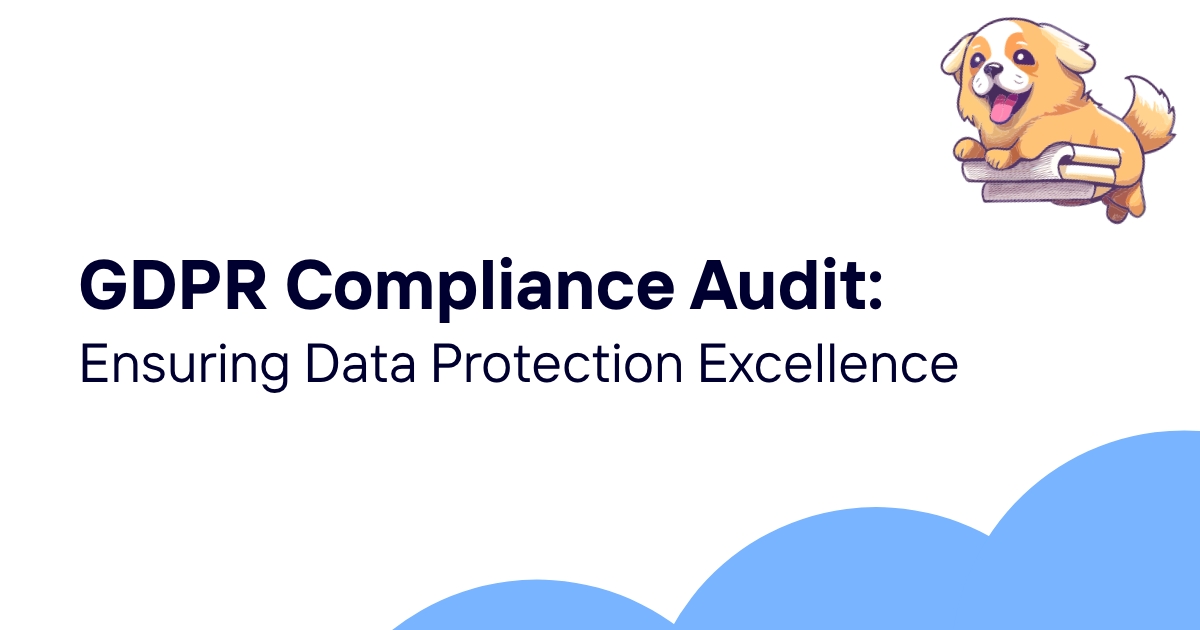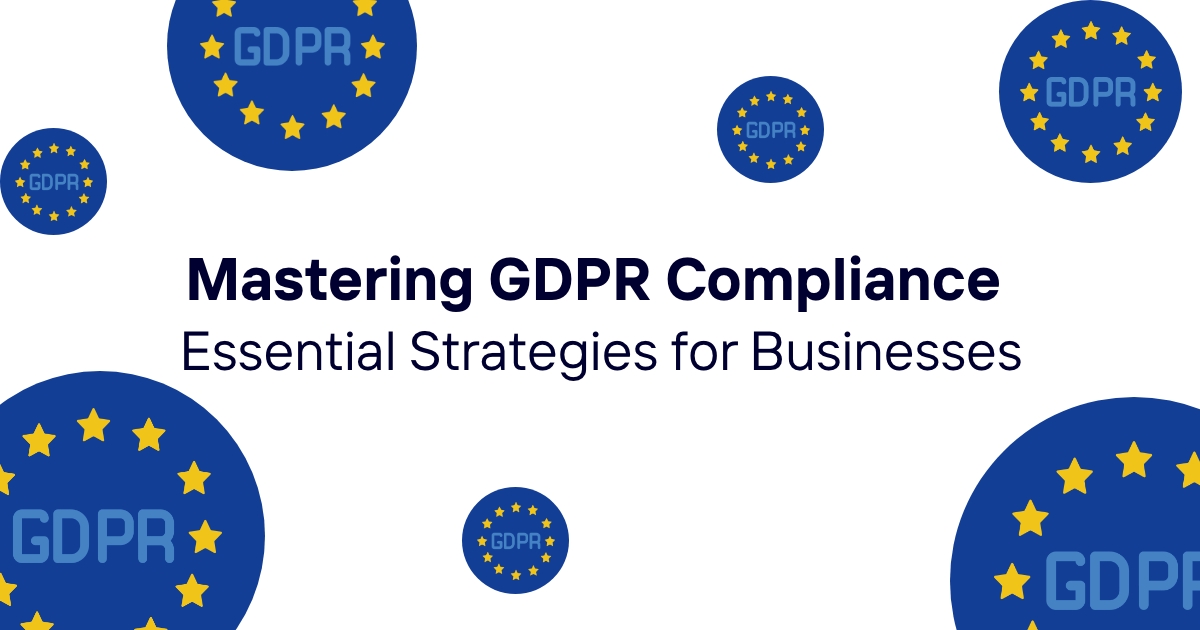Introduction
In an era where data has become a valuable commodity, protecting personal information is more crucial than ever. Enter the Data Protection Officer (DPO), a key figure in ensuring organizations handle personal data responsibly and in compliance with privacy regulations. This article delves into the role of the DPO, their responsibilities, and the significant impact they have on data protection practices within organizations.
Table of Contents
- What is a Data Protection Officer?
- The Role of DPOs in GDPR Compliance
- Key Responsibilities of a Data Protection Officer
- When is a DPO Required?
- Qualifications and Skills for Data Protection Officers
- Internal vs. External DPOs
- The DPO's Position Within an Organization
- Benefits of Having a Data Protection Officer
- Challenges Faced by Data Protection Officers
- Best Practices for Working with a DPO
- The Future of Data Protection Officers
- How GDPR Compliance Software Supports DPOs
What is a Data Protection Officer?
A Data Protection Officer (DPO) is a professional responsible for overseeing data protection strategy and implementation within an organization. They ensure compliance with applicable privacy laws and act as a bridge between the organization, data subjects, and supervisory authorities.
The concept of a DPO gained prominence with the introduction of the General Data Protection Regulation (GDPR) in the European Union. However, the role has since become integral to data protection efforts worldwide, extending beyond just GDPR compliance.
The Role of DPOs in GDPR Compliance
Under the GDPR, certain organizations are required to appoint a DPO. This requirement applies to:
- Public authorities or bodies (except for courts acting in their judicial capacity)
- Organizations whose core activities involve regular and systematic monitoring of data subjects on a large scale
- Organizations whose core activities consist of large-scale processing of special categories of data or data relating to criminal convictions and offenses
Even when not legally required, many organizations voluntarily appoint DPOs to demonstrate their commitment to data protection and to benefit from their expertise.
Key Responsibilities of a Data Protection Officer
The responsibilities of a DPO are wide-ranging and critical to an organization's data protection efforts. These include:
-
Monitoring Compliance: DPOs oversee the organization's adherence to GDPR and other data protection laws. They conduct regular audits, assess risks, and recommend improvements.
-
Training and Awareness: They educate staff on data protection responsibilities and promote a culture of privacy within the organization.
-
Advising on Data Protection Impact Assessments (DPIAs): DPOs guide the process of conducting DPIAs for high-risk data processing activities.
-
Acting as a Point of Contact: They serve as the primary liaison between the organization and supervisory authorities, as well as data subjects exercising their rights.
-
Maintaining Records: DPOs keep detailed records of data processing activities and ensure proper documentation of data protection practices.
-
Policy Development: They contribute to the creation and updating of data protection policies and procedures.
-
Privacy by Design: DPOs advocate for and guide the implementation of privacy-focused approaches in new projects and technologies.
-
Incident Response: In case of data breaches, DPOs play a crucial role in managing the response and notification process.
When is a DPO Required?
While the GDPR mandates DPO appointment in specific cases, other factors may influence an organization's decision to designate a DPO:
-
Nature of Data Processing: Organizations handling sensitive personal data or engaging in large-scale data processing should consider appointing a DPO.
-
Industry Requirements: Some sectors, such as healthcare or finance, may have additional regulatory requirements necessitating a DPO.
-
Organizational Complexity: Large organizations with multiple departments handling personal data may benefit from a centralized DPO role.
-
International Operations: Companies operating across borders may need a DPO to navigate various data protection laws.
-
Risk Management: Appointing a DPO can be a proactive measure in managing data protection risks and demonstrating accountability.
Qualifications and Skills for Data Protection Officers
An effective DPO possesses a unique blend of technical knowledge, legal understanding, and soft skills. Key qualifications include:
-
Expert Knowledge: Profound understanding of data protection laws, particularly GDPR, and their practical application.
-
Technical Proficiency: Familiarity with information systems, data security, and emerging technologies.
-
Legal Acumen: Ability to interpret and apply complex legal requirements to organizational practices.
-
Communication Skills: Capacity to explain complex data protection concepts to various stakeholders, from board members to frontline employees.
-
Analytical Thinking: Skill in assessing risks, conducting audits, and developing strategic solutions.
-
Integrity and Ethics: Strong moral compass and commitment to upholding privacy principles.
-
Project Management: Ability to oversee and coordinate various data protection initiatives across the organization.
-
Continuous Learning: Dedication to staying updated on evolving data protection laws and technologies.
While formal certifications can be beneficial, practical experience and a multidisciplinary background often prove invaluable for DPOs.
Internal vs. External DPOs
Organizations have the option to appoint an internal DPO or engage an external professional. Each approach has its advantages:
Internal DPO
Pros:
- Deep understanding of the organization's structure and processes
- Easier integration with existing teams and workflows
- Potentially more cost-effective for large organizations
Cons:
- Potential conflicts of interest
- May lack broader industry perspective
- Limited resources in smaller organizations
External DPO
Pros:
- Independent perspective and objectivity
- Access to specialized expertise and resources
- Flexibility in terms of engagement level
Cons:
- Less familiarity with organizational nuances
- Potential challenges in building internal relationships
- May be more costly for smaller organizations
The choice between internal and external DPOs depends on factors such as organizational size, complexity of data processing activities, and available resources.
The DPO's Position Within an Organization
The GDPR stipulates that the DPO must report to the highest management level and operate independently. This positioning is crucial for several reasons:
-
Authority: Direct access to senior management ensures the DPO's recommendations are taken seriously.
-
Independence: The DPO must be free from instructions regarding their tasks and protected from dismissal or penalties for performing their duties.
-
Conflict Avoidance: The DPO role should not conflict with other duties, particularly those involving decisions about data processing purposes and means.
-
Resource Allocation: Senior management support is essential for providing the DPO with necessary resources and access to data processing operations.
-
Cultural Influence: A high-level position allows the DPO to foster a privacy-conscious culture throughout the organization.
Organizations must carefully structure the DPO role to ensure these principles are upheld while integrating the position effectively within their existing hierarchy.
Benefits of Having a Data Protection Officer
Appointing a DPO brings numerous advantages to an organization:
-
Compliance Assurance: DPOs help navigate complex data protection regulations, reducing the risk of non-compliance and potential fines.
-
Risk Mitigation: By identifying and addressing data protection risks early, DPOs help prevent costly data breaches and reputational damage.
-
Improved Data Governance: DPOs contribute to better overall data management practices, enhancing data quality and security.
-
Competitive Advantage: Demonstrating strong data protection practices can build trust with customers and partners, potentially leading to business growth.
-
Efficient Data Subject Rights Management: DPOs streamline processes for handling data subject requests, ensuring timely and appropriate responses.
-
Cultural Transformation: The presence of a DPO often leads to a more privacy-conscious organizational culture.
-
Innovation Support: DPOs can guide the development of privacy-enhancing technologies and data-driven innovations.
-
Stakeholder Confidence: Regulators, investors, and partners often view the presence of a DPO positively, enhancing organizational credibility.
Challenges Faced by Data Protection Officers
While the role of a DPO is crucial, it comes with its set of challenges:
-
Balancing Interests: DPOs must reconcile data protection requirements with business objectives, often navigating conflicting priorities.
-
Keeping Pace with Technology: Rapid technological advancements require DPOs to continually update their knowledge and adapt strategies.
-
Resource Constraints: Many DPOs face limitations in terms of budget, staff, and tools necessary to fulfill their responsibilities effectively.
-
Organizational Resistance: Implementing data protection measures may face resistance from departments prioritizing efficiency or cost-savings.
-
Regulatory Complexity: Navigating multiple, sometimes conflicting, data protection laws across different jurisdictions can be challenging.
-
Measuring Success: Quantifying the impact of data protection efforts and demonstrating ROI can be difficult.
-
Incident Response Pressure: Managing data breaches under tight timelines and intense scrutiny can be stressful.
-
Continuous Education: The need to keep the entire organization updated on evolving data protection requirements is an ongoing challenge.
Best Practices for Working with a DPO
To maximize the effectiveness of a DPO, organizations should:
-
Involve Early and Often: Include the DPO in the early stages of projects involving personal data processing.
-
Provide Adequate Resources: Ensure the DPO has the necessary tools, budget, and support staff to fulfill their duties.
-
Respect Independence: Avoid situations that could compromise the DPO's ability to provide unbiased advice.
-
Facilitate Cross-Departmental Collaboration: Encourage cooperation between the DPO and other departments like IT, Legal, and HR.
-
Support Continuous Learning: Invest in ongoing training and development for the DPO and relevant staff.
-
Implement Clear Reporting Structures: Establish direct lines of communication between the DPO and senior management.
-
Foster a Privacy Culture: Promote organization-wide awareness and commitment to data protection principles.
-
Regular Reviews: Conduct periodic assessments of the DPO's role and its impact on the organization's data protection posture.
The Future of Data Protection Officers
As data protection continues to gain importance globally, the role of DPOs is likely to evolve:
-
Expanded Scope: DPOs may increasingly be involved in ethical considerations around data use, particularly in AI and machine learning contexts.
-
Global Harmonization: As more countries adopt data protection laws, DPOs will play a crucial role in navigating global compliance landscapes.
-
Technology Integration: DPOs will likely work more closely with IT teams to implement privacy-enhancing technologies and automated compliance tools.
-
Strategic Partnership: The DPO role may evolve from a primarily compliance-focused position to a strategic partner in data-driven innovation.
-
Specialization: We may see the emergence of industry-specific DPO roles tailored to unique sector challenges.
-
Regulatory Evolution: As data protection laws continue to develop, DPOs will be at the forefront of interpreting and implementing new requirements.
How GDPR Compliance Software Supports DPOs
In the complex landscape of data protection, DPOs can greatly benefit from specialized GDPR compliance software. Tools like ComplyDog.com offer comprehensive support for DPOs and organizations striving for GDPR compliance:
-
Centralized Data Mapping: Automated tools for creating and maintaining data inventories, simplifying the task of tracking data flows and processing activities.
-
Risk Assessment Automation: Built-in features for conducting and documenting Data Protection Impact Assessments (DPIAs), helping DPOs identify and mitigate risks efficiently.
-
Policy Management: Centralized platforms for creating, updating, and distributing data protection policies and procedures across the organization.
-
Training and Awareness: Integrated modules for delivering and tracking data protection training to employees, supporting the DPO's educational responsibilities.
-
Compliance Monitoring: Dashboards and reporting tools that provide real-time insights into the organization's compliance status, enabling proactive management.
-
Data Subject Request Handling: Streamlined processes for managing and responding to data subject rights requests within required timeframes.
-
Breach Management: Incident response workflows that guide DPOs through the necessary steps in case of a data breach, ensuring timely notifications and documentation.
-
Vendor Management: Tools for assessing and monitoring third-party data processors, supporting the DPO's oversight of external data handling.
-
Audit Trail and Reporting: Comprehensive logging and reporting features that demonstrate compliance efforts to management and regulators.
-
Regulatory Updates: Regular updates to reflect changes in data protection laws, helping DPOs stay current with evolving requirements.
By leveraging GDPR compliance software like ComplyDog.com, DPOs can streamline their workload, enhance accuracy, and provide more strategic value to their organizations. This technology not only supports compliance efforts but also frees up DPOs to focus on more complex aspects of data protection strategy and innovation.
In conclusion, the role of a Data Protection Officer is pivotal in today's data-driven world. As organizations grapple with increasing data protection responsibilities, DPOs serve as essential guides, ensuring compliance, fostering trust, and enabling responsible data use. By understanding the multifaceted nature of this role and providing adequate support, organizations can not only meet their legal obligations but also turn data protection into a competitive advantage. As the digital landscape continues to evolve, the importance of DPOs in safeguarding privacy and enabling ethical data practices will only grow, making them indispensable partners in the journey towards a more privacy-conscious future.


















